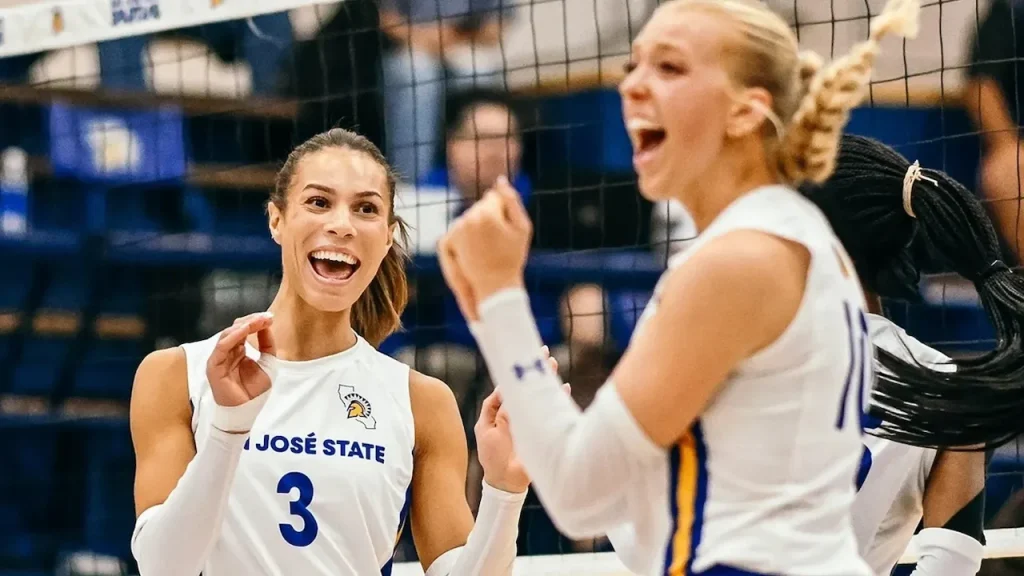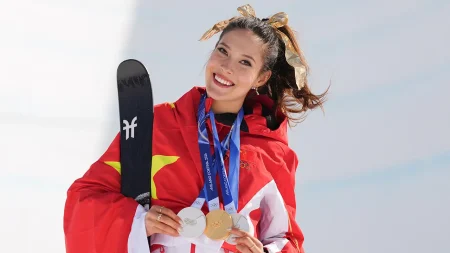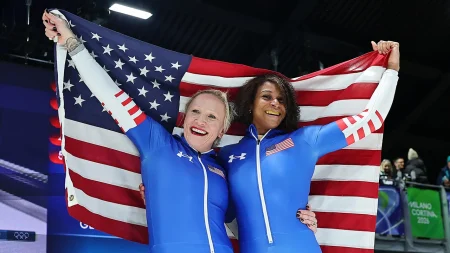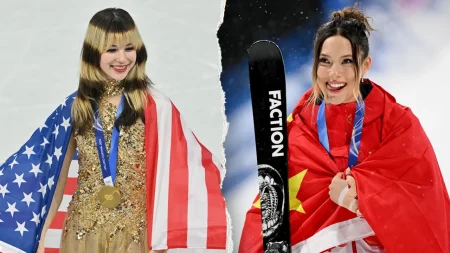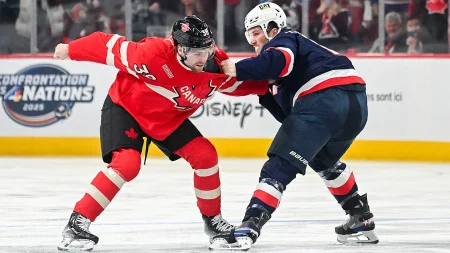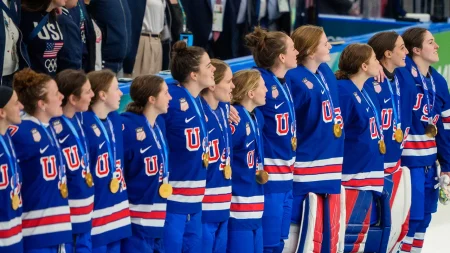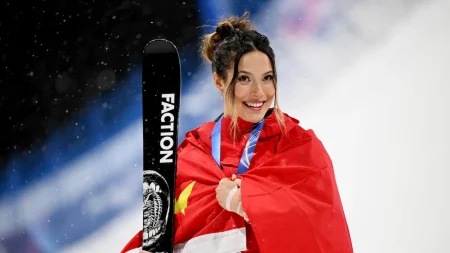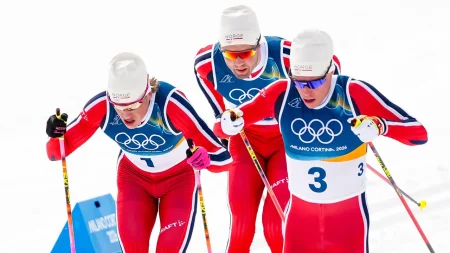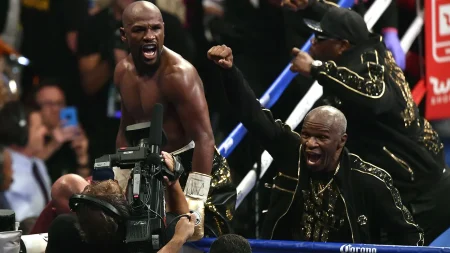Blaire Fleming and Brooke Slusser arrived in Las Vegas just before Thanksgiving, marking their final trip together as volleyball teammates. The following evening, they attended a downtown magic show with their teammates, under the watchful eye of a security escort. The magicians engaged with the audience, attempting to reveal personal secrets—a task the performers avoided with their team. Slusser explained that despite not being called on stage, the collective tension surrounding their participation in the sport loomed large, particularly given the controversies they faced regarding Fleming, a trans player. Slusser has been embroiled in legal battles due to being forced to share accommodations with Fleming without prior knowledge of Fleming’s transgender identity, and she expressed feelings of betrayal over the lack of transparency from coaches.
As tensions escalated, Slusser filed a federal lawsuit against the NCAA regarding its gender identity policies and another against the Mountain West Conference. Her accusations included a conspiracy between Fleming and a Colorado State player that alleged a deliberate attempt to injure her during a match. Although an investigation dismissed the injury allegation, Slusser recounted her traumatic experiences throughout the season, revealing the bruises she suffered from one of Fleming’s powerful spikes. These incidents heightened her emotional strain, especially as she was oblivious to Fleming’s identity during those moments. The compounded stress of competing with Fleming and knowing that the administrative staff had withheld such crucial information deeply affected her experience in the sport.
Despite the conflicts, Slusser remained professionally committed to embracing her role on the court. During Thanksgiving, she dined with Fleming and their teammates, attempting to maintain camaraderie while conversations avoided the ongoing upheaval surrounding their dynamic. Following a series of forfeits from rival teams, Slusser’s team learned they would advance to the Mountain West Tournament finals. Despite the unusual circumstances leading to their position, Slusser focused on her last chance to compete at a collegiate level, having aspirations for a future in sports science.
As the matches progressed, Slusser acknowledged the unique challenge posed by Fleming’s presence on the team. Though her competitive spirit prevailed, she felt conflicted about setting up a 6-foot-1 trans teammate to perform against other women players. The scrutiny heightened as even high-profile individuals, like President-elect Donald Trump, seized on viral moments of Fleming’s dominant performance as proof that trans inclusion in women’s sports needs reform. While Slusser supported her teammate, fear consumed her each time she facilitated Fleming’s spikes, worried about the safety and well-being of their opponents.
During the final game in Las Vegas, the team exhibited signs of fatigue and struggled to perform well. Fleming, despite her outstanding skillset, had an uncharacteristically tough start. While she eventually found her rhythm, errors plagued the team, leading to a disappointing championship outcome. After the final whistle, Coach Todd Kress condemned the surrounding narratives of hate and discrimination, highlighting the emotional toll on the players. As Bolstering emotions lingered, Slusser sought out their suspended assistant coach, feeling a nostalgic connection to her given the tumultuous journey they had been through together.
Upon completing her final match, Slusser expressed a mix of relief and profound change. Her experiences at San Jose State University and the surrounding controversies deeply affected her worldview regarding trust, especially in collegiate sports. She reflected on how the mistrust she’d developed might influence her future relationships and the way she would approach parenting, should she have children. This tumultuous journey shaped her perspective on sport, trust, and the institutions meant to support young athletes, creating a lasting impact on her life and future endeavors. In navigating the intersection of identity, sport, and ethics, Slusser’s battle reflects broader societal tensions regarding inclusion and fairness in athletics.




